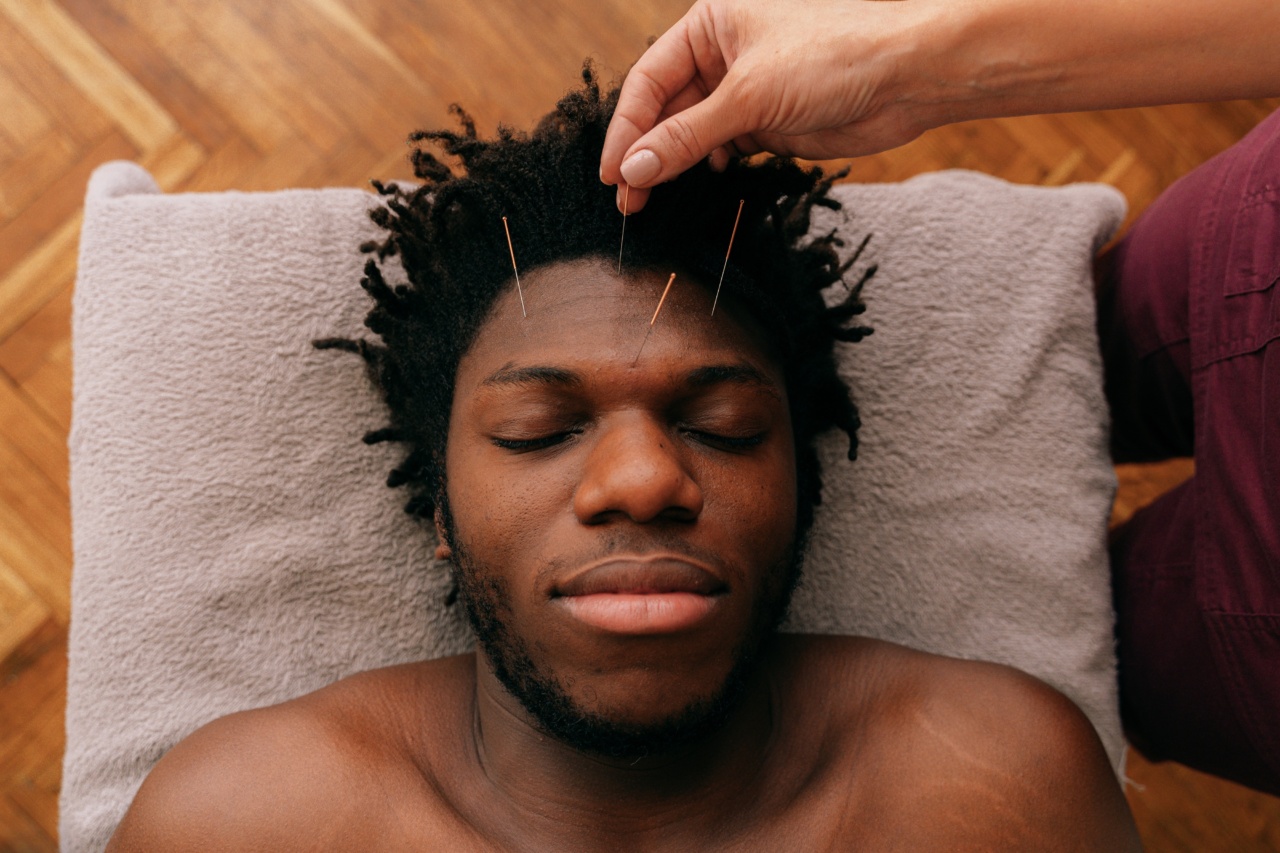Acupuncture is a traditional Chinese medicine practice that involves inserting thin needles into specific points of the body. These points are believed to be connected through pathways or meridians that carry energy, or qi, throughout the body.
By stimulating these points, acupuncturists aim to promote the flow of qi and restore balance in the body.
How Does Acupuncture Work?
The exact mechanisms behind acupuncture are still not completely understood by modern science. However, several theories have been proposed to explain its effects.
One popular theory is that acupuncture stimulates the release of endorphins, which are natural painkillers produced by the body. It is also believed to stimulate nerves, muscles, and connective tissue, which may enhance blood flow and trigger the body’s natural healing response.
Conditions Treated with Acupuncture
Acupuncture is known to be effective in treating a wide range of conditions. Here are some of the most common conditions that people seek acupuncture for:.
1. Chronic Pain
Acupuncture has been shown to provide relief for various types of chronic pain, including lower back pain, neck pain, osteoarthritis, and migraines.
It is believed to help reduce inflammation and promote pain relief by stimulating the release of endorphins.
2. Stress and Anxiety
Many people turn to acupuncture as a complementary therapy for stress and anxiety management. Acupuncture sessions are often reported to promote relaxation and improve overall well-being.
3. Sleep Disorders
Insomnia and other sleep disorders can significantly impact a person’s quality of life. Acupuncture may help regulate sleep patterns and promote better sleep by reducing stress and anxiety levels.
4. Digestive Issues
Acupuncture has been used for centuries to address various digestive issues, including chronic constipation, irritable bowel syndrome, and indigestion.
It is believed to regulate the digestive system and improve the overall functioning of the gastrointestinal tract.
5. Fertility and Reproductive Health
Acupuncture is often used in conjunction with other fertility treatments to increase the chances of conception. It may also help manage menstrual disorders, alleviate menopausal symptoms, and support overall reproductive health in both men and women.
6. Respiratory Disorders
Acupuncture has shown promise in alleviating symptoms associated with respiratory disorders such as asthma, allergies, and sinusitis. It may help reduce inflammation, improve airflow, and enhance immune function.
7. Cancer Supportive Care
Many cancer patients undergo acupuncture as a complementary therapy to manage treatment side effects like chemotherapy-induced nausea and vomiting, neuropathy, and fatigue.
It may also help improve overall well-being and quality of life during cancer treatment.
Is Acupuncture Safe?
When performed by a trained and licensed acupuncturist, acupuncture is generally considered safe. The needles used in acupuncture are extremely thin and sterile, reducing the risk of infection.
However, like any medical intervention, there are potential risks and side effects associated with acupuncture.
1. Bruising and Soreness
Some people may experience minor bruising or soreness at the needle insertion sites. This is usually temporary and subsides within a few days.
2. Fatigue and Dizziness
It is not uncommon to feel a mild sense of fatigue or dizziness during or after an acupuncture session. This is usually a sign that the body is adjusting to the treatment and is considered normal.
3. Organ Injury and Infection
While rare, organ injury and infection are potential risks of acupuncture if proper sterilization and needle insertion techniques are not followed. It is crucial to seek treatment from a qualified acupuncturist who follows strict safety protocols.
Choosing the Right Acupuncturist
When considering acupuncture as a treatment option, it is important to find a qualified and experienced acupuncturist. Here are some tips to help you choose the right one:.
1. Seek Recommendations
Ask your primary healthcare provider, friends, or family members if they can recommend a reputable acupuncturist. Personal recommendations can provide valuable insights and help you make an informed decision.
2. Check Qualifications and Credentials
Ensure that the acupuncturist you choose is licensed and certified by the appropriate governing body in your country or state. They should have completed the required educational and training programs to practice acupuncture safely.
3. Experience
Consider the acupuncturist’s experience in treating your specific condition. Some acupuncturists specialize in certain areas, such as pain management or fertility. Choose someone with relevant experience to maximize the benefits of your treatment.
4. Communication and Comfort
It is essential to feel comfortable and well-supported during your acupuncture sessions. Look for an acupuncturist who listens to your concerns, explains the treatment process clearly, and creates a safe and welcoming environment.
Conclusion
Acupuncture is a time-tested practice that offers potential benefits for various conditions. However, it is important to consult with a healthcare professional before beginning acupuncture or any other alternative treatment.
With proper research and guidance, acupuncture can be a valuable addition to your healthcare regimen.






























